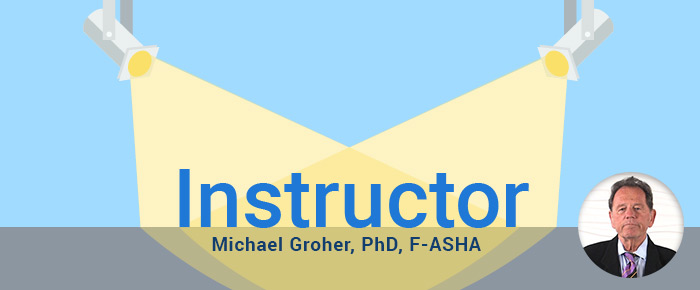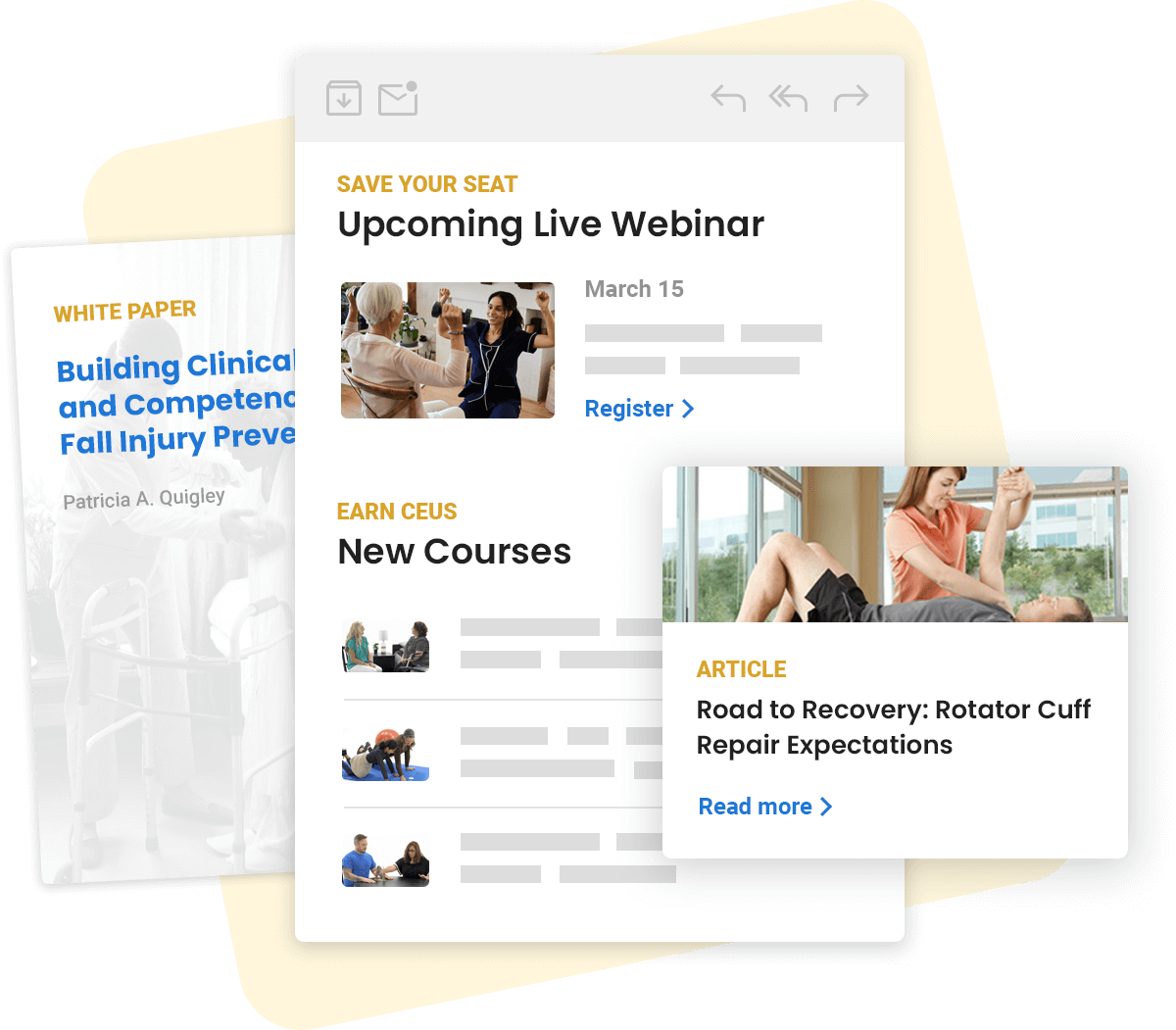Instructor Spotlight: Michael Groher

Michael Groher is an emeritus professor of the Department of Communicative Disorders at the University of Redlands in Redlands, California. Dr. Groher has spent most of his career working as a medical speech pathologist in acute and long-term care settings. The majority of hospital work was done for the Department of Veterans Affairs in Seattle/Tacoma, New York, and Tampa. He is best known for his pioneering work with patients who have swallowing disorders.
In November of 2015, Dr. Groher was given the Honors of the American Speech-Language-Hearing Association. This award is given to members who have distinguished themselves by making outstanding contributions to the field over a lifetime of professional service. Dr. Groher was very pleased to receive this recognition from his peers and is thankful for all of his colleagues, patients, and families who have been an integral part of it.
What is the most rewarding part of being a therapist?
The most reward part of being an SLP is that we have a great opportunity to change people’s lives. Restoring communication and swallowing functions are two of the most basic processes humans cherish. For 11 years, I ran an aphasia group at the New York Veterans Administration Outpatient clinic. The group would meet one time a week for 2 hours. While the focus of the group was on improving communication, the most rewarding outcome was the established camaraderie among its members. Some members had been coming for more than 8 years, but many new faces showed up as well. They were welcomed with open arms and, regardless of the level of ability, everyone felt that they could contribute to the conversation. Members spontaneously organized social events outside of the group therapy that resulted in the formation of many friendships, something that can be easily lost following stroke. I learned more from this group about aphasia than any mentor or textbook could have taught me.
Tell us about a memorable moment in your career.
One of the most memorable moments in my career was after my first text was published in 1984. The number of offers I received to speak on dysphagia was incredible. I had no idea that there would be such an interest in this topic among speech-language pathologists.
What is one piece of advice you have for fellow SLPs?
The most important thing to remember about evaluating and treating swallowing disorders is that this field of study is new. This means that there is the potential for it to change rapidly as investigators add new information. As a result, the practicing clinician must develop methods of inquiry that allow them to remain current, whether it be from CEU activities or regular reading of the extant literature.
What excites you the most about working with MedBridge?
The best thing about MedBridge is the professionalism of the product, and the willingness to work with each author on an individual basis. They are dedicated to provide a quality educational experience, using not only lecture, but practical exercises that are designed to ensure learning. The short educational segments are particularly useful for the busy, practicing clinician who does not have the time to participate in an entire daylong course. Short segments also allow one to pick and choose selected topics. This approach to learning is very useful.









